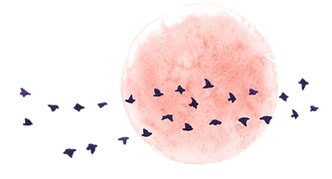A user manual for the Body-Mind
workshops by
Andrew Cook MSc RCST
 Boundaries
Boundaries

Boundaries and differentiation are the way that life maintains its complexity, and are fundamental to every aspect of Life's proper functioning. The newly fertilised egg is surrounded by nurse cells from the ovary and sperm, both of whom protect it and guide it on its way to implant in the wall of the womb, all moving round the zona pellucida, the wall of saccharide that forms a thick protective layer in addition to the walls of the cell itself. And the whole process of development is marked by the constant renewal and development of protective boundaries around the growing embryo.
As we grow up, those boundaries become less physical and more related to respect and appropriate exercise of authority - i.e. more psychological. But we all recognise that physical personal body space is important, feel uncomfortable if anyone comes too close, and can also feel the body tightening up ("muscle armouring") if we feel threatened.

Personal body space (Proxemic space) behaves differently if there is a sense of threat, and anyone suffering from trauma or PTSD or Dissociation has their relational life made more difficult because their body defines its Proxemic space differently. And although you might consciously (cognitively) be OK that someone comes close you you or touches you to provide physical or emotional support, parts of the body that are hyper-aroused might not be so happy. This is one reason why treatments are not successful, or they make a difference for a short while, and then fail to make any change at all.

So a very useful process in the treatment of trauma is to help your body's boundaries to self-regulate. This makes treatment much easier, and often makes significant positive changes to the ability to make and keep nurturing relationships. Functional personal boundaries are an important element of resilience.
Boundary work / Proxemic Reset is only available on a one-to-one basis. I also run occasional classes to teach the technique to therapists. For more information also see my new Free online book at body-mind-resilience.com





<< ¦ Top ¦ Menu ¦ Front page ¦ Body-Mind ¦ CST/Clinic ¦ Contact ¦ Site Map ¦ Search
all content © Andrew Cook, Norwich UK, 2021-2024



